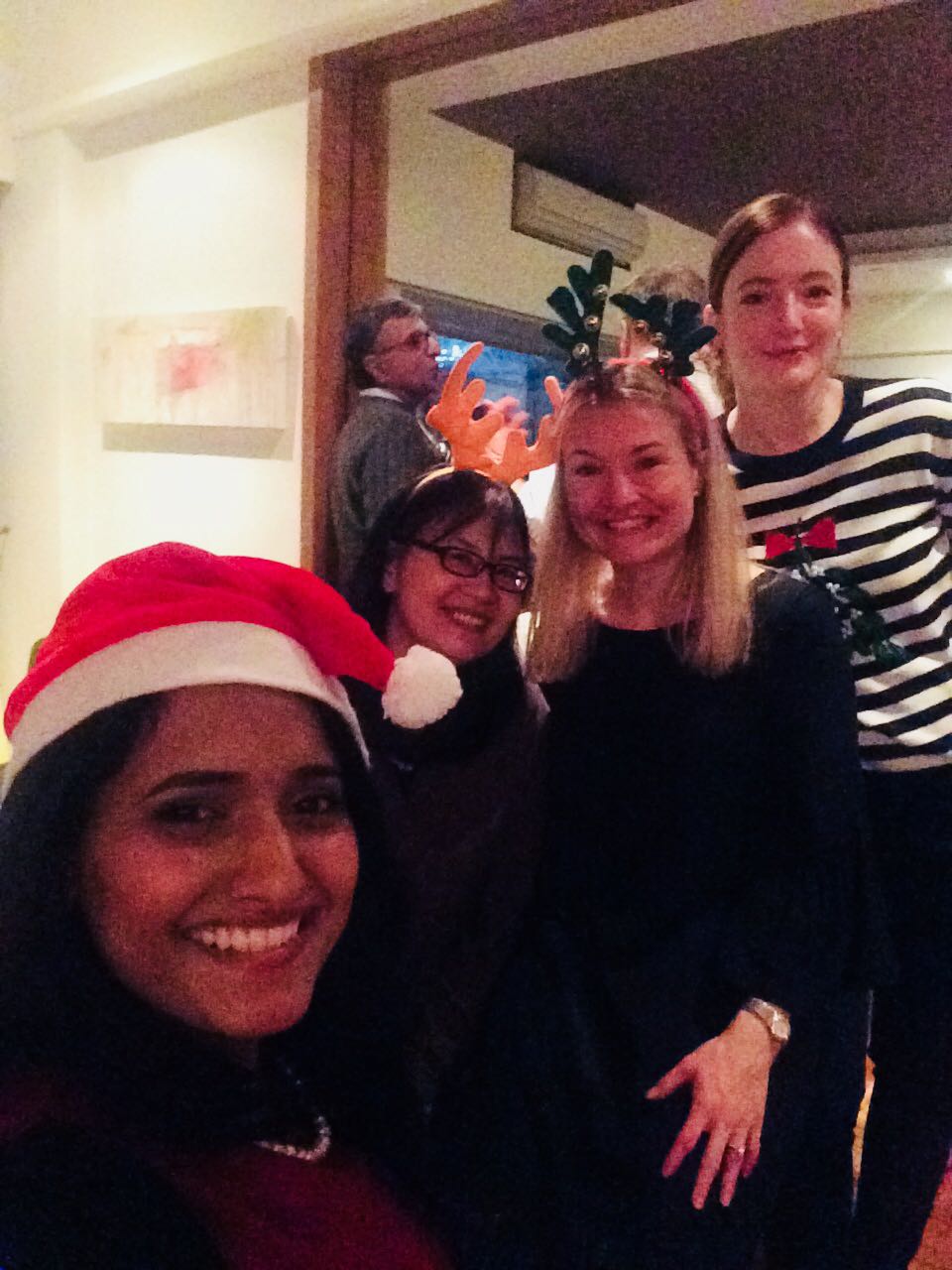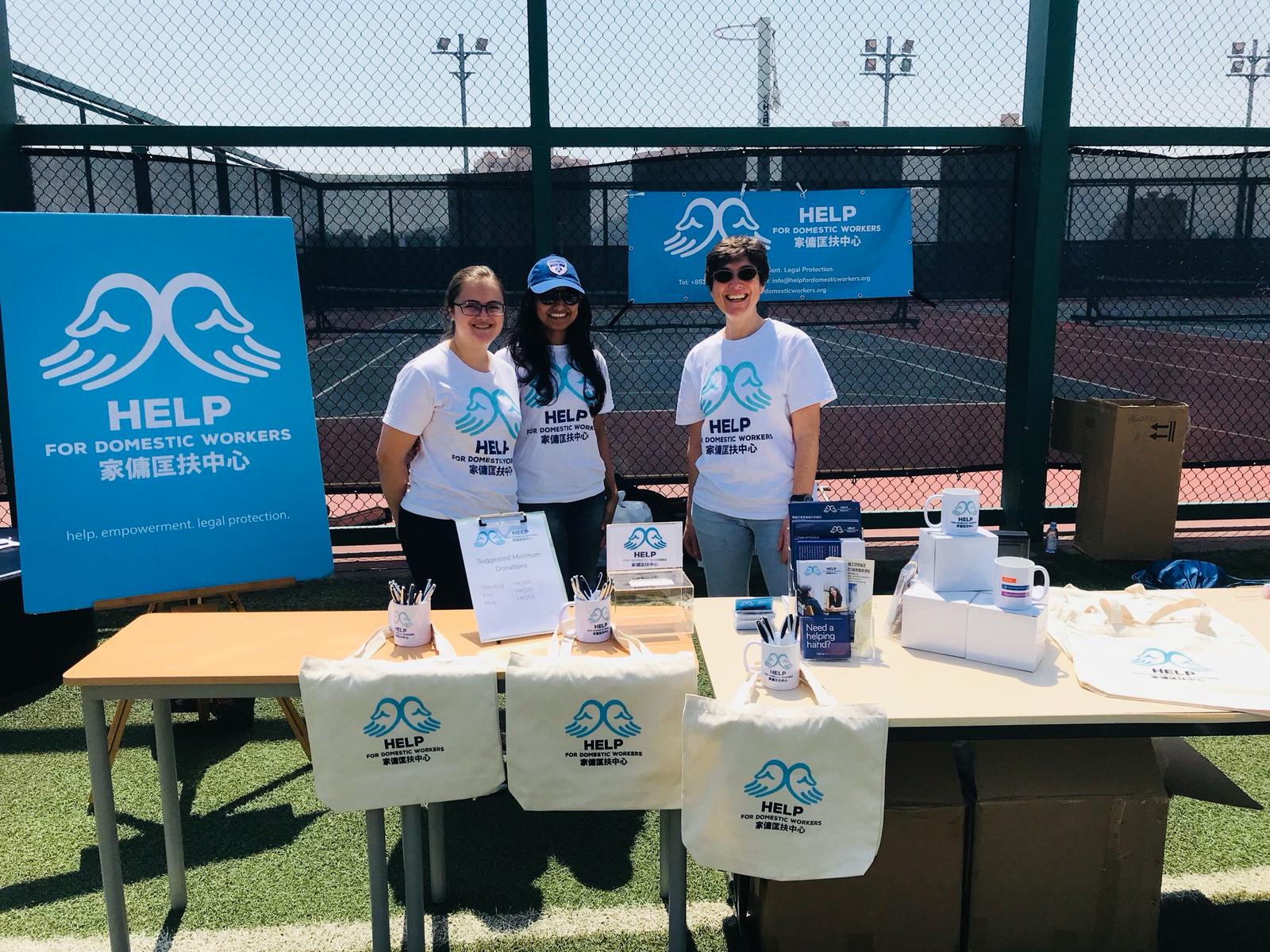Where are you from and how long have you been in Hong Kong?
I am from Bangalore, the IT capital of India. I have been in Hong Kong for nearly two years.
Tell us about your first encounter with a domestic worker.
My first encounter with a domestic worker was in India. Her name was Rani and she was a caring and loving person. She looked after my brothers and me during my school years while my parents were working. My fondest memories of Rani were of oiling my hair and cooking our favourite food after school.

What is your role at HELP?
I am the Student Education Coordinator, my work includes developing a curriculum to build empathy and respect among students, the next generation of employers of domestic workers in Hong Kong. The program is known as FirstHand.
What is FirstHand, why do you think it is so important?
FirstHand is an experiential learning program aimed to challenge the perceptions of students towards domestic workers. It allows them to use critical thinking skills and creative problem solving strategies to foster empathy, respect, and to create social change.
I have always been fascinated by change and been a strong believer that everybody is capable of change. I am particularly inspired by the preventive model rather than remedial when it comes to making a difference in society and FirstHand does just that. By targeting the leaders of tomorrow to relate to domestic workers with empathy through role plays and reflective discussions, we are reinforcing the one feature that makes us stand out as human beings compassion.
What does FirstHand involve, what is the aim of the program?
FirstHand, a six-session learning programme, aims to inspire young people to broaden their channels of empathy as they immerse themselves into the hypothetical lives of domestic workers in Hong Kong. FirstHand differs from traditional presentations because it is not a presentation. It is an immersive, experiential learning programme. It offers a refreshing, strategic, and sustainable alternative to a talk, which can far more easily fall prey to the wandering attention of a student. We have developed a suite of experiential learning activities that can be delivered to secondary school students in Hong Kong in English, with primary school and Chinese language materials to follow. The name of the programme comes from the firsthand experiences the students will gain through role play as a domestic worker in a series of scenarios designed to challenge their perceptions about domestic work. This exposure will help them learn about the issues faced by domestic workers, trigger thoughts and change perceptions all elicited and delivered in a fun and interactive way.
When is FirstHand due to be rolled out?
FirstHand is all set to be rolled out now, however we want to test the program first with a few schools and learn where and how we can improve it. We know FirstHand will evolve further as we begin to roll it out.
Why do you feel supporting domestic workers, and HELP, is so important?
After years of evolution since the Big Bang, and advancements in the socio-economic, technological and biological world, we would still be a failed society if we do not teach the youth of today, the leaders of tomorrow, to relate to one another. HELP is one NGO which is very functional. The mission that HELP undertakes is much needed and everyday is a battlefield to seek justice with domestic workers. Domestic workers fill the void of a Mother at home, their presence envelopes the room with love and care and their presence is of paramount importance in many families, but their voice is often unheard. I find it hard to fathom reasons for inhuman treatment towards a population that is only trying to work and make everyone’s day a smooth and easy one.
From your work with HELP, what do you think are the most common issues domestic workers face in Hong Kong?
The two most common issues facing domestic workers in Hong Kong are unlawful terminations of the employment contract and unpaid contractual entitlements.
What do you wish the public knew about domestic workers in Hong Kong? How can they support the rights of domestic workers?
I wish people knew that domestic workers are employees trying to work and earn a living just like you and me. There are several ways to support the rights of domestic workers. It starts with being aware of the rights, reminding ourselves that domestic workers are people with responsibilities, obligations, concerns and feelings just like you and me. Domestic workers need to be respected in the same ways you or me would like to be respected and work with a fair employer. They too are looking to do just that. No one is perfect and it is quite easy to forget to practice kindness and empathy. What I find useful is to ask the question, “would I like to be spoken to or treated a particular way in my workplace?” then translate those thoughts and feelings into actions by taking the opportunity to give back and make the employment with your domestic worker a cordial one.
What’s the best way to start a conversation with someone who doesn’t understand some of the issues domestic workers face?
The best way to start and engage someone who doesn't understand some of the issues domestic workers face is by asking a did you know question. Secondly, providing statistics of domestic workers with similar concerns is helpful. Finally, it helps to invite them to wear the shoes of a domestic worker and take it to their workplace and ask them how comfortable they felt.
What’s one thing you’ve learnt about yourself/Hong Kong through your work with HELP?
I have learnt that no problem of mine is big when compared to the concerns that some of the domestic workers in Hong Kong encounter.
What do you do in your free time?
I love cooking with my husband. We also like traveling. Other times, I practice yoga and am looking forward to sharing my practice with others.
How can schools get involved in FirstHand?
Please email me at m.augustine@helpdwstagistg.wpengine.com I would be more than happy to discuss how FirstHand might fit in to your school’s curriculum.


Michelle Augustine has lived and worked in Hong Kong since 2016. Although she started her career as an Investment Banker, the substantial shift from banking to education has been due to her innate passion to make a difference in society. Before working at HELP, she worked with a learning centre in Hong Kong. She also worked as a school counsellor in International Schools in India and the UAE. Her previous work includes building age-appropriate curriculums to build lifeskills and harness the emotional quotient among students across age groups as well as teaching yoga. Born and raised in India, she is privileged to be part of such a meaningful organisation as HELP.

